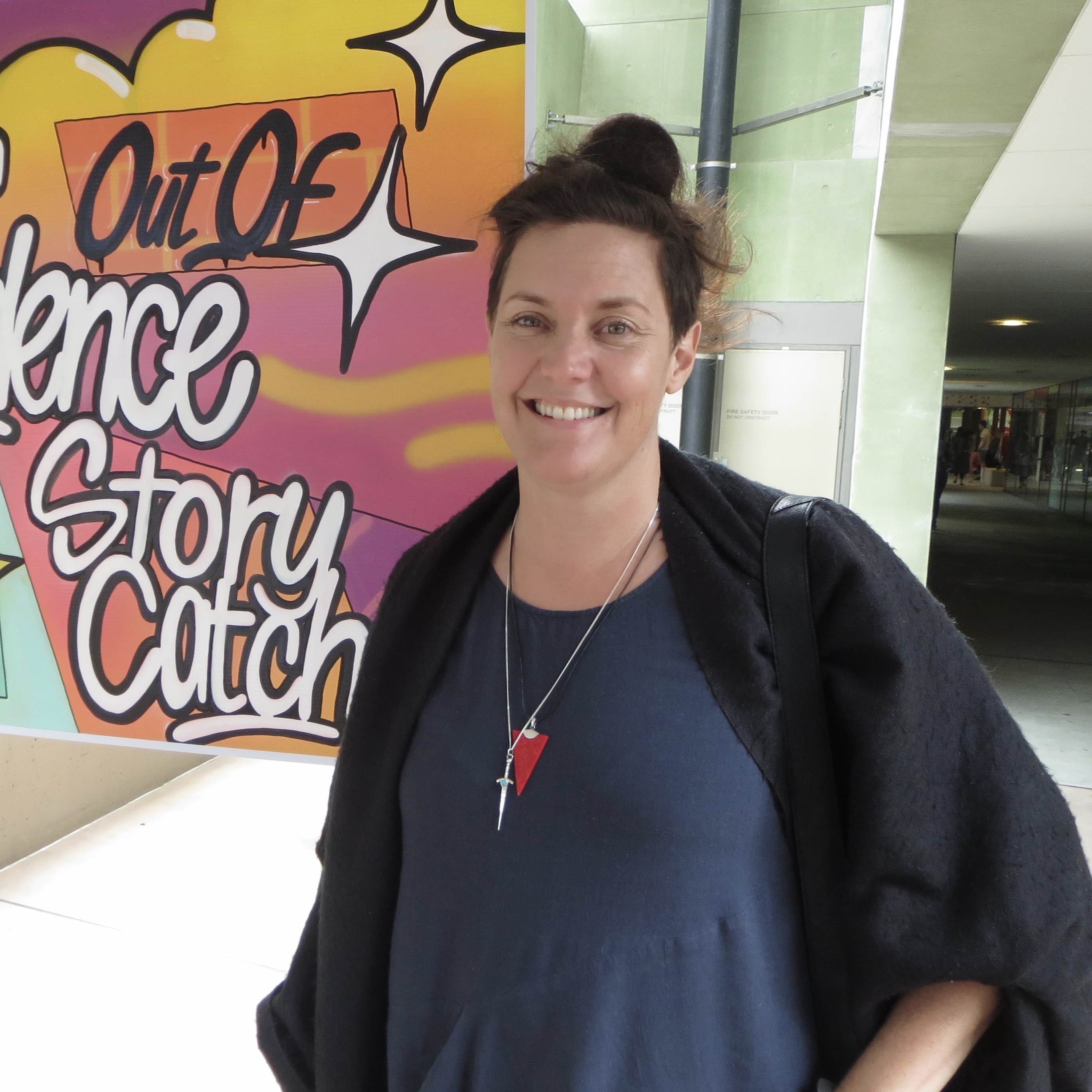I was so stripped raw and at the same time I really felt like I was being held by the bricks, by the mortar, by the sound, by the community, by the people in that room.
There was no judgement. It was powerful.
I feel like the grandmother of the local music industry in some ways. I started my first business in ’91 before the Internet, so music and live music has been important to my whole life. When I think of belonging, I feel like I belong in the music community. It’s really important to me but I did decide to leave it.
Last year, I lost my adopted father, put mum into care, de-hoarded the house, did all of that business and then, right at my lowest point — March 2015 was horrific — I felt so disconnected from everything. That was the lowest of the low. I was a wreck emotionally.
But months earlier, before all the shit hit the fan, I’d bought one ticket to see a gig at The Triffid, which is a live music venue in Brisbane. I just love Conor Oberst, who’s from New York and he was touring his album Upside Down Mountain. I loved his record and I played it the whole time when my father died. It’s a bit about grief. It’s a sad record but a beautiful record. So I’d bought this one ticket for 80 bucks and then I’d forgotten about it. I’d gone through all that shit and was at the lowest of the low and I just thought I can’t bear it. I don’t want to go out. And my husband said, Well you’ve got the ticket, you should go.
So I turned up to this live music gig in such a vulnerable place but because it was Brisbane, I could go to gigs on my own, and the venue, the music community, the sound, the walls of the building, everything in that gig just held me. And I cried and I cried through the whole show. Because I’ve worked with bands for years and years, the sound of live music is healing to me.
It was just this one moment. It was one example for me of when you belong to a community, even though the people you know might not be there and the people who are there don’t know what you’re going through, it can still hold you. It can still hold space for you. I was so stripped raw and at the same time I really felt like I was being held by the bricks, by the mortar, by the sound, by the community, by the people in that room. There was no judgement. It was powerful.
That was the beginning of the upswing. By April, I’d sold my parent’s house and settled mother. Then I made the decision to walk away from artist management and it took me a few months to extract myself. In July, I took three months off, moved away from the family, down to near Byron Bay, and reflected and ate and slept well and exercised, and did all the good stuff.
I removed myself completely. From everything. From family, community. Everything.
I knew I needed to go and I managed to pull myself out of depression and anxiety, drug free, really clear, shift my energy, process my trauma. After that I knew I didn’t want to manage artists any more. So I’m at university. I’m using my brain. I’m doing an arts degree in Aboriginal and Torres Strait Islander Studies and running A Rock and Roll Writers Festival. This way I can help lots of people and I really believe in the power of words with the music.
I just thought that was a really lovely little moment. You know when you dedicate your life to a community and you really belong, and then it’s there for you and yet it’s not a real thing. When I took those three months off, and that’s when I knew — it was awful, I worked through heaps of layers and darkness — but there was a moment where I went, No I belong, and I remember it really clearly, I belong with my children and my husband in that house. I now need to make that work because that’s where I belong for the next five years.
So I can home and I reclaimed that space. I reorganized the house and made things so that I felt I really did belong here.
This story was caught at Brisbane’s State Library Queensland Big Day of Belonging 18 June 2016.

